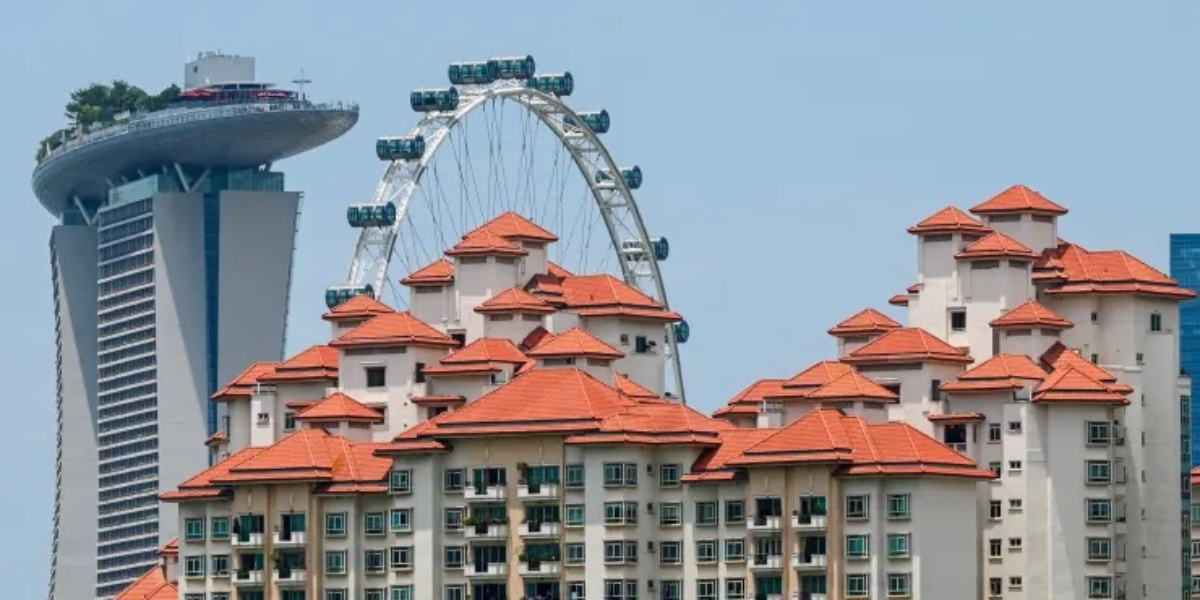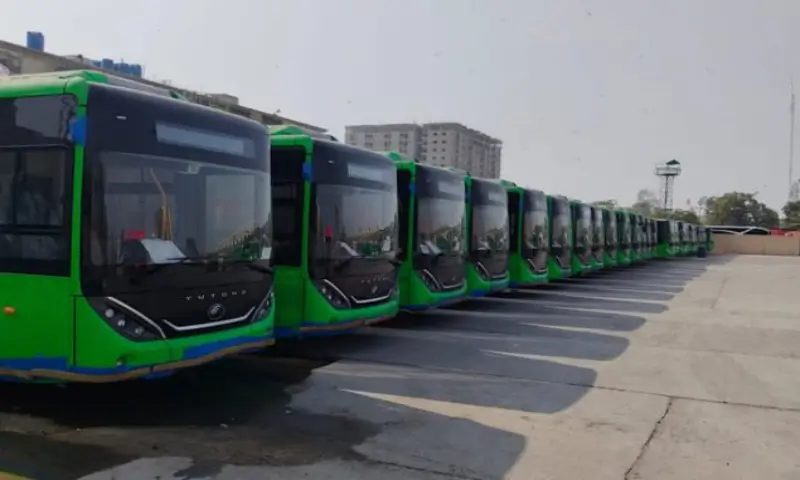SINGAPORE: Jonathan Benarr is leaving Hong Kong after eight years to pursue a fresh set of attractions in Singapore.
“Hong Kong was always the fun place to be,” he told CNBC. “Singapore was where you went if you were a bit boring or you had a family.”
“Well, fast forward [two years], Singapore is a shining light,” he said. “You’ve just reopened the bars and the clubs, and people are being treated like adults.”
Due to severe Hong Kong’s Covid regulations, several inhabitants of the Chinese financial metropolis have relocated to Singapore, where rental demand appears to have increased.
According to the Urban Redevelopment Authority, private home rents increased by 4.2 percent in the first quarter of this year, compared to 2.6 percent the previous quarter.
“Anecdotally, we know that perhaps there are some of those based in Hong Kong looking to relocate to Singapore, and this is contributing to the increase in rents,” said Leonard Tay, head of research at real estate agency Knight Frank Singapore.
To be clear, Hong Kong interest isn’t the sole factor driving up rents. During the pandemic, rental rates in Singapore were already rising due to demand from a variety of causes, including young adults moving out of their parents’ homes and those seeking interim housing due to building delays.
Travel rules in Hong Kong vs. Singapore
Arriving visitors to Hong Kong must stay in a hotel for at least seven days and do numerous Covid tests. Since September, Singapore, on the other hand, has gradually reduced quarantine regulations. Vaccinated tourists will no longer be required to do any Covid tests as of Tuesday.
′′[Hong Kong] just feels backwards,” said Benarr, who works for the hospitality company The Mandala Group as group director of real estate.
“What was once a progressive city, just feels like it’s no longer interested in being part of the international conversation,” he said.
The British national is already packing up his Hong Kong flat and relocating to Singapore permanently.
Hong Kong’s Information Services Department responded to CNBC’s request for comment by citing a speech by Chief Executive Carrie Lam in late March, in which she stated that Hong Kong must strike a balance between virus risks and Covid precautions.
This is to “enable the city to continue addressing the social and development needs of Hong Kong and the individual circumstances of our people,” she said.
“We couldn’t be too harsh with our people and the people’s tolerance has always been one of the factors that we need to consider in devising the best public health measure for Hong Kong.”
Arrivals from Hong Kong are surging.
According to Singapore’s tourism agency, visitor arrivals from Hong Kong virtually doubled from January to February this year.
According to official figures, that figure increased even further in March, climbing more than 110 percent from February.
According to industry sources, some of those arriving in Singapore aim to settle down and have sought out co-living spaces or serviced apartments.
Co-living start-up based in Singapore “We attribute demand from Hong Kongers anticipating the imminent tightening of public health protocols,” Hmlet said of the “exponential” spike in bookings in January 2022.
Hong Kong inquiries increased by 25% from December 2021 to January 2022, according to Hmlet.
“Booking pace from Hong Kong has dipped slightly in February and March but remained higher than previous months,” said Giselle Makarachvili, the company’s chief executive officer.
Hong Kong has a dynamic zero policy for Covid and has enacted rigorous measures to slow the spread of the virus since January, including a daily ban on dining in starting at 6 p.m.
In February, the city tightened the limits even more, albeit they were slightly loosened last Thursday.
Far East Hospitality, which manages serviced apartments, observed a surge in inquiries and bookings towards the end of February, though this has since subsided, the company told CNBC.
Permanent relocation?
According to data from Hmlet and Far East Hospitality, some arrivals from Hong Kong make appointments for as little as two weeks, while others plan to remain for a year.
“Based on our observation, most bookings from Hong Kong are for permanent relocation to Singapore,” Hmlet’s CEO said.
“Interestingly, we also noted a group of members whose original travel intent was for business but eventually converted to permanent stays,” Makarachvili added.
Around 70% of Hmlet Homes’ Hong Kong bookings were for three-month stays, which was the minimal requirement. The remaining 30% of reservations were for durations of between six and twelve months.
According to the CEO, 80 percent of Hmlet Homes’ Hong Kong customers are families with young children.
According to Tan Chia Hui, head of operations for hotels and serviced residences, Far East Hospitality has had a mix of bookings from both travellers and businesses searching for temporary housing for their staff.
She explained that corporate bookings are often for one to three months and for larger flats with two to four bedrooms.
“This indicates that while guests may relocate for work, they are looking to bring their families along as well,” she said.
In the fourth quarter of 2021, WeWork’s Singapore sites saw a nearly 13 percent increase in sales and inquiries from Hong Kong-based organisations, compared to the third quarter.
JustCo hasn’t seen a significant increase, but multinational financial institutions in Hong Kong are looking for flexible workplaces in Singapore, according to the company.
Singaporeans who have returned home
Singaporeans based in Hong Kong have been returning home for extended periods of time in recent months, claiming the relative independence that residents of the Southeast Asian metropolis now have in comparison to Hong Kong.
“The main thing was the restrictions,” said a Singaporean banking employee who asked to remain anonymous since he did not have permission to speak to the media.
He spent approximately a month in Singapore, where he said there was “some degree of normalcy.”
“There’s not much evolution in how [Hong Kong] is handling it, and therefore it doesn’t really give us much hope … that there will be any form of reform or change in the government’s strategy,” he said.
When Hong Kong revealed in February that it planned to test its whole population for Covid three times, another Singaporean, who only wanted to be identified as Leung, claimed he bought a one-way ticket to Singapore.
“The government [had] totally lost it,” he stated at the time, adding, “I have to get out of here.”
Some Singaporeans felt compelled to return to their homeland to see family and friends.
One Singaporean working in finance in Hong Kong, who did not want to be identified, said it was a fantastic opportunity to see loved ones, especially after the Covid situation in the Chinese metropolis deteriorated earlier this year.
Because Singapore does not require fully vaccinated tourists to be confined, she said her friends used Singapore as a base for short-term business or personal visits to the United States and Europe.
Leung visits his family in Malaysia on a regular basis, which he couldn’t do if he lived in Hong Kong.
Too little too late?
Hong Kong began permitting groups of four to gather at the same time on Thursday, and restaurant hours were extended until 10 p.m.
But, according to Leung, who works at a financial institution and returned to Hong Kong in April, that’s “not something to celebrate.”
Limits on social gatherings have been removed in Singapore, and social separation is no longer necessary. The 10.30 p.m. cut-off for alcohol sales was also recently loosened, allowing pubs and karaoke lounges to operate.
It’s excellent that Hong Kong’s rules would be less strict, but Leung believes there’s still a long way to go.
“If this continues on in Hong Kong for, I don’t know, the next year or so, I think it will be a strong enough reason to leave,” he said.
The Singaporean, who works in banking and has been in Singapore for a month, said he has no immediate intentions to leave Hong Kong, but that Covid and the city’s political upheaval have made him reconsider his long-term plans to stay.
“In the past, maybe I could have entertained … staying long enough to be a Hong Kong [permanent resident], but for now, I think with the current situation, it’s unlikely that I will do so,” he said.
Similarly, Leung stated that he is not in a hurry to return to Singapore, but that he is open to the possibility.
“If something comes along, the numbers are right, it aligns with my career goals, why not right? It’s a good time to move,” he said.
For the latest Business News Follow BOL News on Google News. Read more on Latest Business News on oldsite.bolnews.com





















